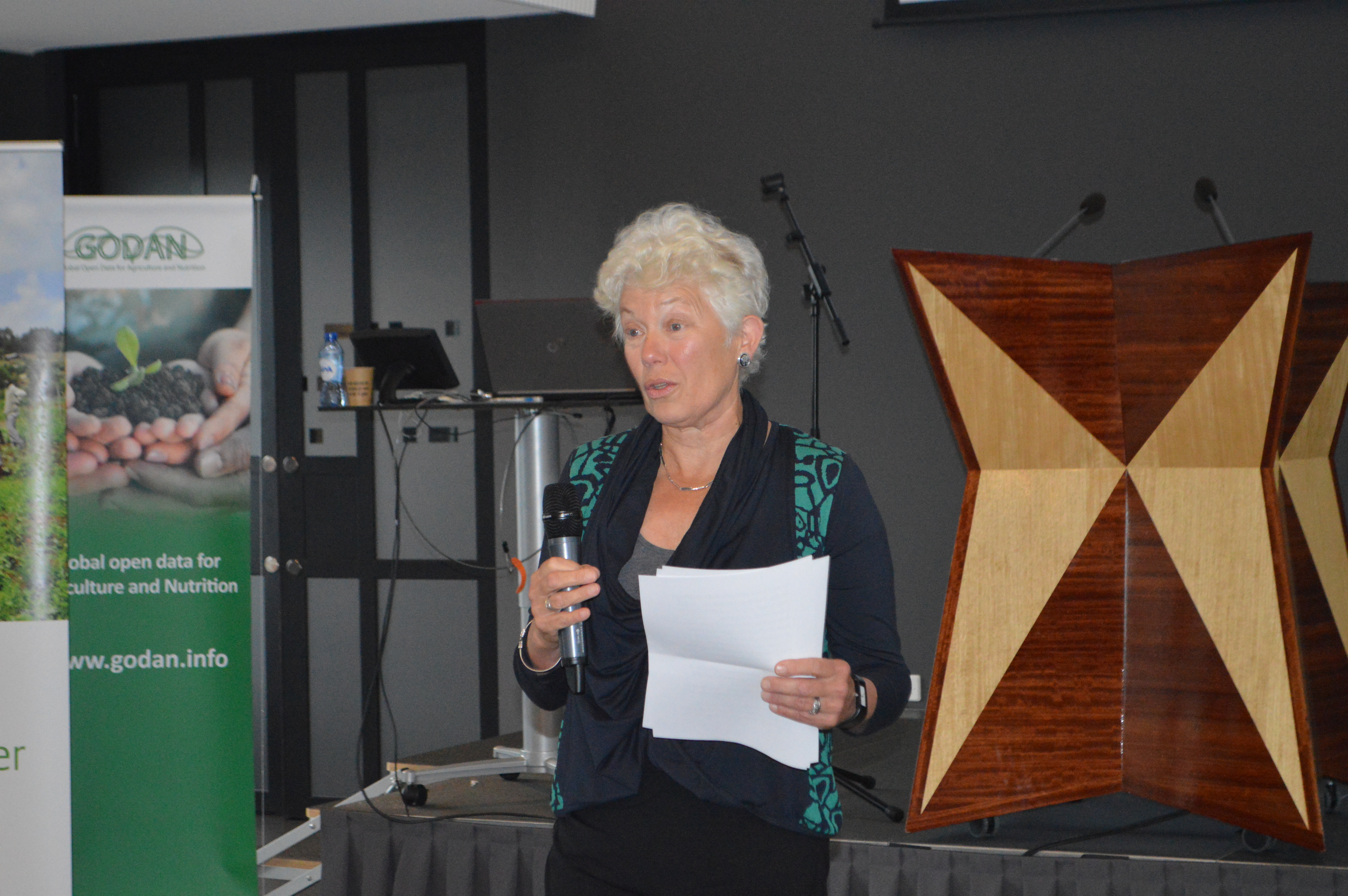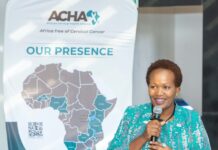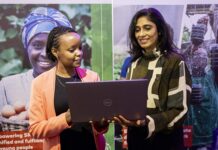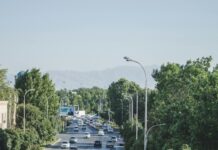By Winnie Kamau – Data Journalist
What is Open data? Well this is a new phenomenon a new bug that has hit the world and looks like it is here to stay. Open Data is described as “Availability of timely usable accessible data that is open” in short it is sharing information be it in form of pictures and statistics to enable one to make informed decisions.
In a recent Global Open Data on Agriculture and Nutrition (GODAN) workshop held in Den Haag hosted by the Netherlands Ministry of Economics brought great minds to deliberate on the great opportunities in using Open Data in Agriculture and Nutrition.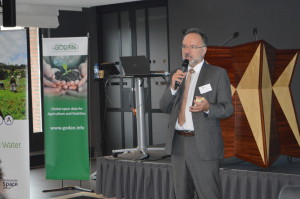
I could not help marvel at some of the Open data initiatives started by various Public and Private sector. One intriguing presentation was from the Netherlands Space office who presented they had always been gathering data using satellites with two satellites set to be launched before the end of 2015 to provide data on the larger component of environment says Adri Bakker of Netherlands Space office “Two Satellites being launched will provide a wealth of data on our environment and will be open at no cost for the users”.
Netherlands has their foot in front by releasing six satellites in the space to monitor Land, Atmosphere, Emergency, Marine, Climate and Security. The satellites especially Sentinel 2 is expected to be launched before the year 2015 ends. But it will be a ground rule that two satellites will be in space and one in the ground at any given time. For this data to work it has to be demand driven in terms of the users through a survey and connect to the local initiatives. “For one to access this as an applicant one has to show a solid business strategy (Model) to ensure financial stability of the service” adds Bakker.
Netherlands Space offers four types of services includes: Farm management/crop management, Weather services, Crop Insurances, early warning floods and Extensive droughts monitoring
Currently the Space Office has 14 projects that have been granted. Innovation with remote sensing of data in Netherlands through National satellite Data Portal 1. Bakker noted “Private sector is appreciated with its own initiatives since they have their own nano satellites sent to space and provide data at low cost this include the Googles of the world among others”.
One thing is clear for the success of Open Data lies in making it cultural. Appreciating the closet culture of information which for the longest time was hidden and now we are making it open for use. Derek Scuffel of Director of Data Sciences at Syngenta noted “There’s need to integrate technologies – integrated agriculture and integrated data by making sure it is cultural and making sure it is reusable”.
Derek pointed out that the United Nations (UN) body, Food and Agricultural Organisation (FAO) has launched an operational database for Africa and Middle East to monitor water and vegetation. Scuffel urged “The availability of good seeds and water are important to make this a success”
How do you make sure data is shareable? It is by creating data and sharing data goes hand in hand with cultural change. Well described datasets share and reuse the datasets. “Technology is not a barrier but is a good shift” added Scuffel. Syngenta which joined GODAN network 6 months ago has reached 3,600 farmers in 41 countries using different crops with an aim to grow a 1000 network of farmers. He made an assurance that they would be sharing the data with the GODAN community during the next summit and also urged “There’s need for a Data ecosystem and not working in silos”
Casper Sitemba Director Intergovernmental Relations and GODAN Lead at the office of the Deputy President in Kenya gave the examples of the Initiatives undertaken by the Government in digitization of the lands records and the call by the Deputy President William Ruto to reduce the cost of data by the Telecommunication industry. Sitemba also gave the success initiatives by the private sector including iCow that helps in finding solutions in dairy farming, Digital shamba where they make it easy for farmers to find crop solutions for pests, diseases, and nutrition deficiencies. While Mshamba provides an mobile based solution for farmers to find prices for their products. Kenya is a partner on Sustainable Development Data that was part of the newly assented 17 Sustainable Goals. With the massive El Nino rains that have rocked the country Kenya has created a Situation Room which monitors the different weather data given by the Mets and help in the mitigation of farmers. “The future is no longer defined it can only be open” urged Sitemba.
Across from Kenya to Ghana, The Ghana Open data Initiative is a huge success with Open data clause protected by the Commission of Information. One great successful initiative in Ghana is Voto Mobile is mobile phone notification survey platform that removes barriers to insightful mobile communication. Stacie Irwin the Regional Programs Coordinator urged that there’s great need to think of privacy in open data given like they do collect data from farmers and other users but their primary concern is will their information be shared to the whole world “We talk of Open data but also we need to think of privacy.”
Across to Burkina Faso the Burkina Faso Open Data Initiative has not been left behind bragging of its success. Just recently a bill was passed in Burkina’s Parliament safeguarding open data. Burkina Faso is also expected to host the first ever and the biggest Open Data conference in the Francophone countries, Open Data Institute, GODAN and the World bank being partners on the 7th and 8th of December 2015.
Back to Den Haag, Ramon van der Louw of the Netherlands ministry of Economic Affairs noted that Open data is not open by design “The Challenge is to let data work for us!” “There’s a great need to connect with various stakeholders and share more data” Ramon added.
Here are some of the take homes from the GODAN workshop at Den Haag

